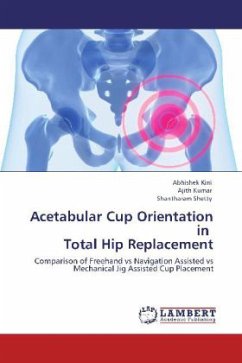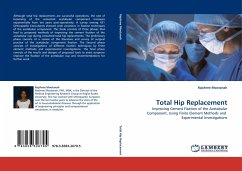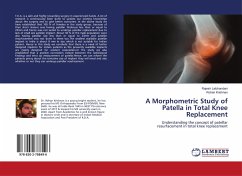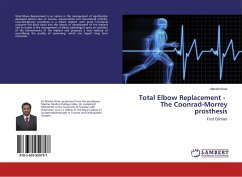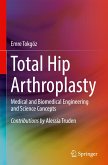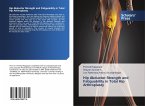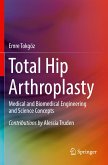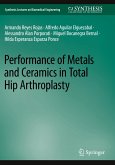Acetabular cup orientation is an important determinant for the success of total hip replacement (THR). The optimal position as described by Lewinnek et al is 40+/-10 of inclination and 15+/-10 of anteversion. Though this is a broad range, to stay within these parameters is difficult considering the advanced stage of disease, dysplasias and defect in acetabulum. To meet this requirement various modes of cup placements have been developed from the traditional free hand cup placement to jig assisted cup placement to the present computer assisted navigation system. We undertook this study to compare the various methods of cup placement i.e. free-hand, mechanical jig assisted and the navigation assisted cup placement and to evaluate which method gives the least variation in cup placement.75 patients were enrolled and further randomly divided into groups of 25 each for free-hand, jig assisted and navigation assisted cup placement. Stryker CART II navigation system was used. Intra-operative the target inclination was 40-45 and anteversion was 15. Our confirmation with postop CT scan measurement has shown that consistent acetabular component orientation in THR is possible using navigation.
Bitte wählen Sie Ihr Anliegen aus.
Rechnungen
Retourenschein anfordern
Bestellstatus
Storno

